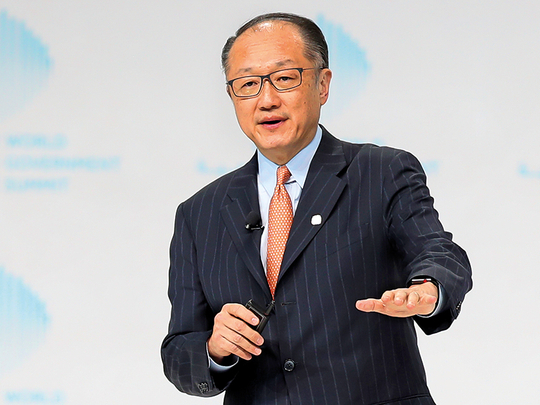
Dubai
In coming years, 150 million people will leave their jobs around the globe, while 300 million young people will be searching for work, says Jim Yong Kim, President of the World Bank.
“The problem of creating new jobs is with us right now,” Kim said at World Government Summit on Monday.
By 2030, the gap is expected to widen to 182 million people looking for jobs that may not be available as artificial intelligence and automation wipe out low-skilled jobs that are waning since the advent of the industrial revolution, he said.
And as the world becomes more interconnected digitally through the internet and social media, increasing aspirations by everyone around the world, a lot of people may be in for major disappointments in the years ahead unless governments act now to head off the problem.
“What happens when aspirations go up and all the jobs go away?,” asked Kim. “Fifty per cent of all jobs today will be eliminated by automation. Sixty-five per cent of all primary students will do jobs that don’t exist today. How we train people will have to change.”
Studies around the world regarding child stunting — falling short of a standard height due to a lack of proper nutrition — predict that those who suffer from the condition will find it even harder to find work in more difficult years ahead because of lesser brain function due to malnutrition, he said.
Study has shown that stunting is happening all over the world with up to one-third of child populations being affected.
In places such as the Middle East, the prevalence rate of shorter children stands at 18 per cent, Kim said.
The key to fighting the trend to ensure a stronger fighting chance for children in poorer countries of securing more advanced jobs in the future is ensuring proper nourishment for all and bolstering education systems, he said.
Vietnam, for example, identified its stunting problem and is now spending 18 per cent of its budget on better education for children who now test at the same levels as children in Germany, Kim said.












